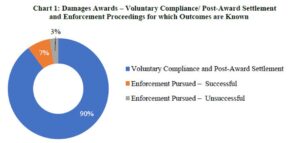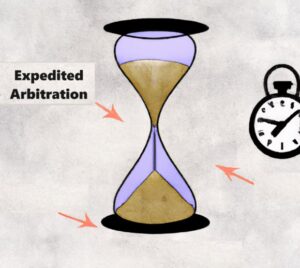On 10 March 2025, the International Centre for Settlement of Investment Disputes (“ICSID”) issued its Final Award in the arbitration between French-Syrian media entrepreneur Bachar Kiwan and the State of Kuwait (ICSID Case No. ARB/20/53). In an affirmation of the rule of law, the Tribunal has recognized serious due process violations and a denial of […]
ICSID Arbitration
Shareholder Claims for Reflective Loss in Investor-State Arbitration: An Overview
Reflective losses are indirect losses, such as a decrease in the value of the shares, suffered by shareholders as a result of harm to the company in which their shares are held.[1] Reflective losses differ from direct losses suffered by shareholders, which may occur through the seizure of shares or barriers to shareholder attendance of […]
Frivolous Claims in Arbitration: ICSID Rule 41(5) and Rule 41
If a Claimant submits a request for arbitration to the International Centre for Settlement of Investment Disputes (ICSID), according to Article 36(3) of the ICSID Convention, its request will be registered, and the case will proceed unless the Secretary-General finds, on the basis of the information contained in the request, that the dispute is manifestly […]
Compliance with ICSID Awards
Established under the ICSID Convention, ICSID operates independently of local legal systems, providing an autonomous legal framework for dispute resolution. Compliance with ICSID Awards refers to the obligation of parties to adhere to and satisfy the terms of an ICSID award, typically through payment of monetary damages, specific performance, or other remedies ordered by the […]
Judicial Expropriation in Investor-State Arbitration
Investor-State arbitrations involving unlawful expropriation are often concentrated on acts from a State’s legislative or executive branch. In this configuration, acts such as executive orders or laws are how a State may expropriate foreign investors. In turn, a lesser-known type of expropriation is judicial expropriation, which can be defined as “[t]he taking of contractual and […]
Summary Procedures in International Arbitration
Summary procedures in international arbitration mean procedures by which the arbitral tribunal determines certain points of fact or law at an early stage of the proceedings, potentially dispensing with the need for further arbitration proceedings. Summary proceedings can be a blessing to a respondent facing frivolous claims that obviously lack merit, as a successful dismissal […]
Expedited Arbitration
Expedited arbitration (or fast-track arbitration) has gained traction in recent years, in response to the length and cost of traditional international arbitration. The first expedited arbitration scheme appears to have been introduced in the 1992 Arbitration Rules of the Geneva Chamber of Commerce and Industry Arbitration Rules (“CCIG”).[1] Today, most leading arbitral institutions have adopted specific […]
ICSID Expedited Arbitration
One of the innovative features of the new ICSID Arbitration Rules, in force as of 1 July 2022 (the “2022 ICSID Arbitration Rules”), figures in Chapter XII, which allows parties to opt into ICSID expedited arbitration. The principal purpose of the ICSID expedited procedure is to reduce the length of ICSID arbitration proceedings and, thus, […]
The Standard of Proof in Arbitration
In The Burden of Proof in Arbitration, a distinction was made between the burden of proof, defined as “the duty of proving a disputed assertion or charge”, and the standard of proof, which “determines the level of certainty and the degree of evidence necessary to establish proof in a criminal or civil proceeding”, according to […]









